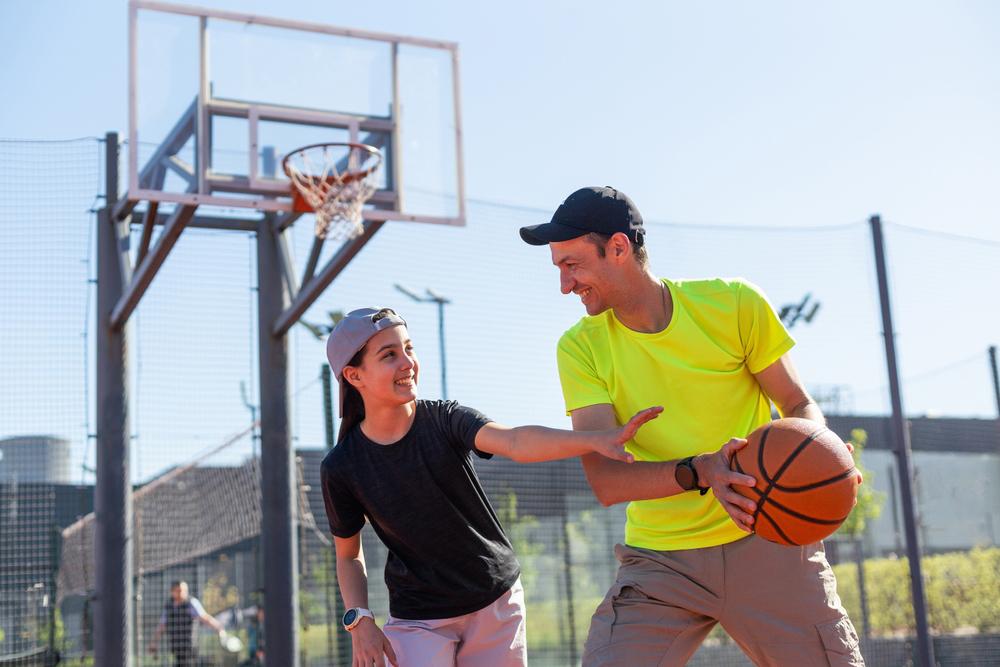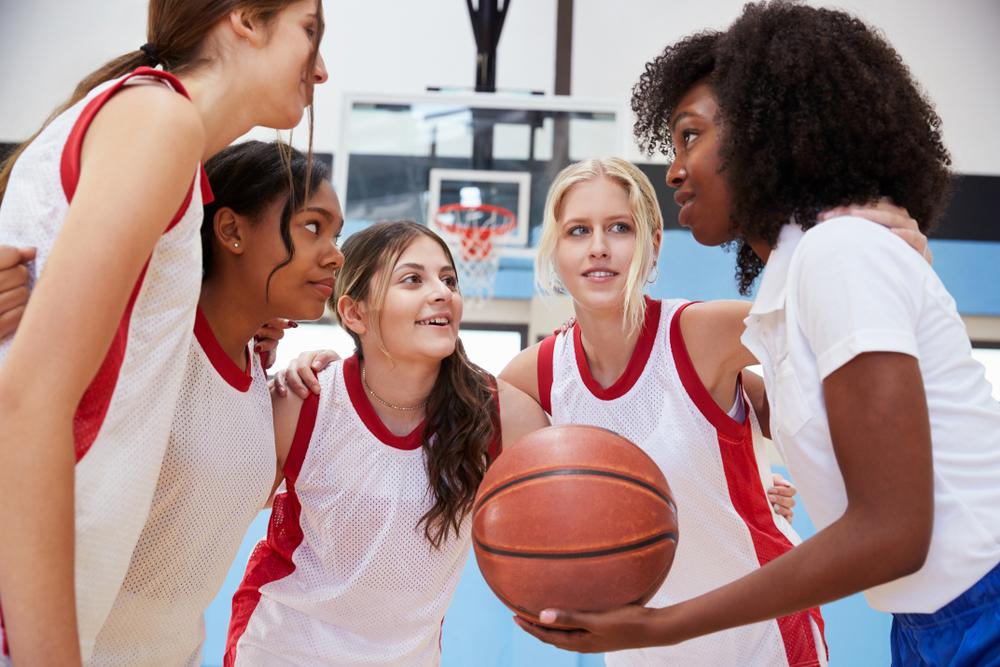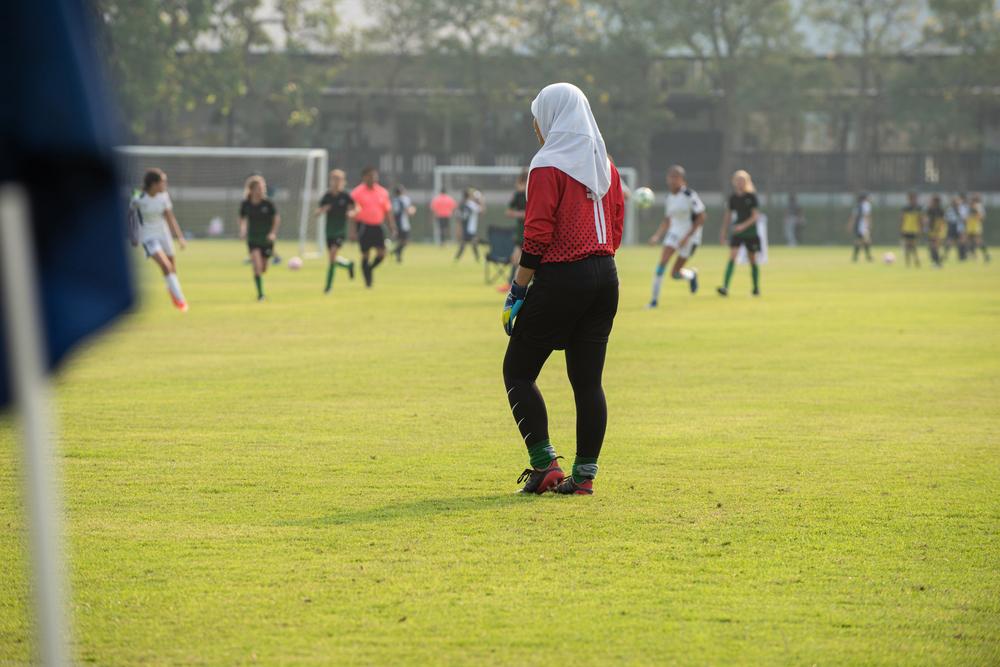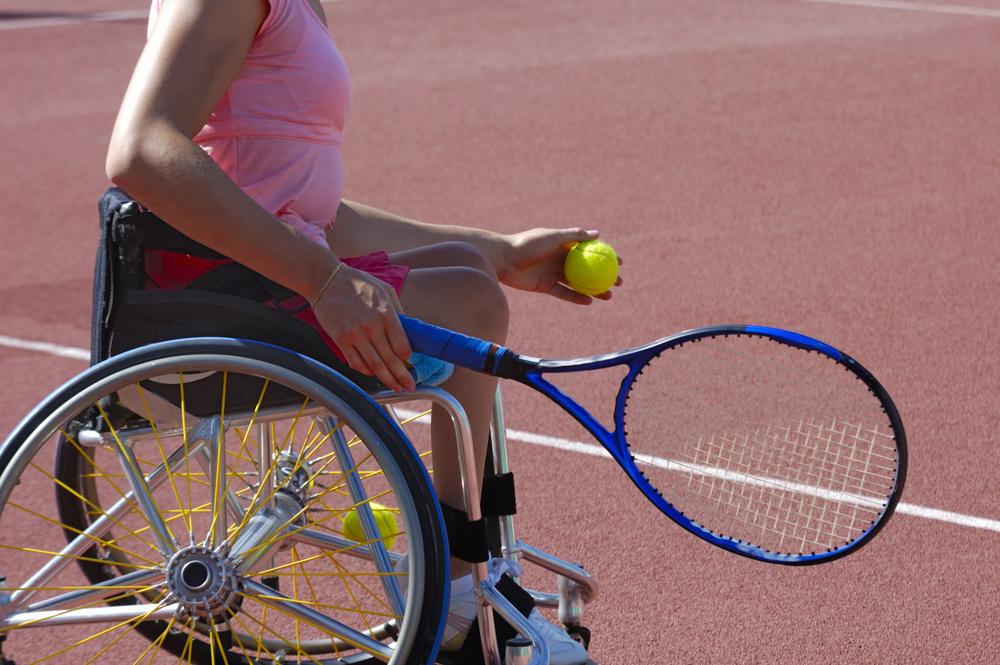 Content Warning: This article contains mentions of bullying.
Content Warning: This article contains mentions of bullying.
Among a parent’s biggest goals is to raise healthy, ethical, and honorable adults. We want our children to like and respect themselves, respect others, and enhance the lives of people around them. One of the most prominent conversations over the past year has revolved around the pervasiveness of poor – and sometimes criminal – behavior from men toward women, and sometimes women toward men.
As society grapples with this crisis, youth sport can play a role in changing the culture for the next generation. While many factors contribute to the ways men and women interact as adults, a positive youth sports experience may teach values and interpersonal skills that help both boys and girls develop into ethical and honorable adults. Here’s how:
Sport teaches athletes to respect effort and work ethic
In an essay entitled, “The Huddle,” famed football coach Bill Curry wrote, “After we trudge in after every interminable workout, we know that sweat smells the same on everybody’s body. When we get busted in the mouth, that blood that trickles is the same color.” Effort, exhaustion, and sweat are great equalizers. Exertion and time eventually break down biases (sex, age, ethnicity, wealth, privilege) and allow people to evaluate each other on merit: skills, work ethic, commitment, and integrity. Having had that experience with teammates in sport, athletes learn to recognize those qualities in people as adults, making them more likely to embrace equality and respect people equally based on values and actions instead of stereotypes.
Sport teaches athletes to respect individuals for unique talents
Harassment is about control and power. Those who feel threatened by other people’s skills, intelligence, or talents use harassment to gain and maintain a position of controlled power. Youth sports teach kids early on that individual teammates possess unique skills, and the benefits of utilizing those talents on and off the competitive field, not suppressing them.
As adults, this lesson manifests as men and women who value and respect each other for the talents and skills they bring to a project, a job, or a family. These are adults who care more about the team’s success than personal glory, and understand that a leadership position is about bringing forth everyone’s best effort.
Sport teaches athletes to lead through collaboration
Many parents encourage children to participate in youth sports to develop leadership skills. Perhaps more important is the type of leaders sport produces. Athletes learn there is no way to obtain a teammate’s best effort through force or intimidation. If you want a person’s best effort, that person needs to feel valued, safe, and appreciated so they want to give their best. Leaders of great sports teams win the loyalty of their teammates through collaboration, not intimidation.
When athletes rise to leadership roles as adults, they lead collaboratively. They understand authority can compel people to do what you say, but people who feel valued, safe, and appreciated will go above and beyond for the team and for you. Harassment and bullying are ways to exert controlled power and compel someone to do what the bully wants. Having experienced the positive results that come from collaborative leadership, including from parents and coaches who model this behavior, athletes are less likely as adults to exploit a position of authority to exert power over another person.
Sport teaches athletes to lose
Harassment and bullying are fueled by insecurities, and a fear of losing is one of the reasons insecure people seek to dominate others. They use intimidation and force to maintain the positions of power they fear losing if their insecurities and weaknesses are exposed. Athletes, on the other hand, learn losing doesn’t diminish your value or self-worth. Anyone can be outplayed on any day, and athletes learn to respect an opponent’s skill and effort, even in defeat. Sports teach athletes competition – and by extension, life – is a series of wins and losses, none of which change who you are. Athletes don’t fear losing because they know it’s not the end of the world, and that the best way to create another opportunity to win is by working hard, moving forward, and earning it.
In adults, this understanding of wins and losses evolves into the respectful give-and-take found in successful relationships. You don’t always have to get your way; you don’t have to win every disagreement. A partner or coworker’s “win” isn’t necessarily a “loss” for you, and you’ll be more likely to get more wins in the future by helping others get theirs.
Addressing the crisis of sexual harassment and workplace bullying through tougher rules and legislation is a good start, but the long-term solution to the crisis requires a cultural shift in how we teach young people to relate to one another. Youth sports provide a great learning environment for parents and coaches to show and teach young people how to treat each other – and lead each other – respectfully, ethically, and fairly.
Societies have confronted and changed long-standing attitudes and behaviors that were once accepted or tolerated, and we can do the same for the next generation. And one of the best ways parents and coaches can help kids develop into adults who reject harassment and bullying is to get them involved in youth sports.



